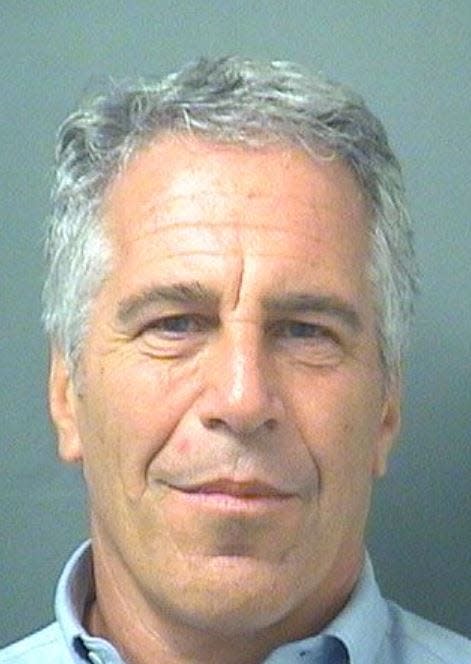Epstein case: Shedding sunshine on a shaded prosecution
Conducting criminal inquiries behind the closed doors of a grand jury room, when appropriate, provides prosecutors with an effective way to further an investigation without jeopardizing jurors, witnesses, the accused or the integrity of a sensitive case.
But secrecy in government can be double-edged. And in the case of serial pedophile Jeffrey Epstein, a well-connected Palm Beach millionaire, prosecutors appear to have manipulated grand jury proceedings to hinder justice rather than advance it, shielding from public view politically sensitive circumstances they couldn’t avoid, details about a prominent defendant who recruited underage girls to his mansion for sexual abuse. It was the first sex crimes case ever sent to a grand jury in Palm Beach County history.
More on the Epstein case: What we could learn from the 2006 Jeffrey Epstein grand jury transcripts

The story did not end with Epstein’s death in a Manhattan jail cell in 2019, as neither the public nor his victims were allowed access to many details of the case, or of the extraordinarily generous treatment and deals he received at the hands of prosecutors and the Palm Beach County Sheriff's Office, unlike those virtually anyone else would be granted.
The Palm Beach Post has spent years pressing, to understand why Epstein got off so easy for so long and why prosecutors under former State Attorney Barry Krischer worked so hard to hide this sweetheart prosecution from the public. Thanks to intrepid journalism, mainly by former Staff Writer Jane Musgrave and Investigative Editor Holly Baltz, a nearly five-year-long lawsuit by The Post and new legislation to pry loose records of grand jury testimony, the Post this month was able to shed light on those dark days.
More on the Epstein case: Jeffrey Epstein prosecutor called 2 underage victims 'prostitutes.' Were they charged?
The old law allowed disclosure of grand jury materials for “furthering justice.” It took the new law, sponsored by state Sen. Tina Polsky, D-Boca Raton and Rep. Peggy Gossett-Seidman, R-Highland Beach, to redefine “furthering justice” to include furthering a public interest.
The Post launched its legal effort in 2019 after learning that prosecutors had undermined their own case by limiting the number of witnesses against Epstein to two, despite the fact that Palm Beach police had identified many. They undermined the credibility of these juvenile witnesses by peppering them with inappropriate questions. They asked one victim what kind of bra and panties she'd been wearing.
Nowhere did they focus on how Epstein was abusing girls whose families didn't have much money and had a scheme of paying them not only for the abuse but also for bringing other victims. The shame kept many of them from reporting it to police.
Getting at the testimony was not easy. “The resistance our team encountered from the state’s attorney, the county clerk and some of the judges involved was unprecedented,” Edwin M. Larkin, chief litigation counsel for Post owners Gannett, wrote in an email commemorating the effort. “Grand jury transcripts are considered sacrosanct,” he explained. “They are never released to the public because the secrecy of the grand jury deliberations is one of highest principles of criminal law.”
The litigation sparked the legislative effort, which led to the grand jury transcripts’ release July 1.
'What you're doing is wrong': Grand jury blamed Epstein's teen victim, transcript shows
Newspapers and politicians are frequent targets of criticism, from each other and from the public. But this case provides evidence that insistence by the press and pols on government integrity and transparency can yield the public result for which they were intended, to shape a more just society.
The Epstein case, a tawdry tale of sexual abuse and privilege of the powerful, also provides sad evidence that even those who cloak themselves in the trappings of our justice system – in Palm Beach County, Washington, D.C. or elsewhere – cannot be left to their own devices, to police themselves without further scrutiny by an aggressive press.
These aren't empty platitudes. Epstein's victims were real people, teens recruited out of middle and high schools in our community, who suffered horrible consequences and deserved better treatment by government protectors.
"Some cut themselves. Several attempted suicide. Many worked in strip clubs, became sex workers, got addicted to drugs, went to prison. At least two overdosed and died, leaving behind young children," as Investigative Editor Baltz spelled out in an article July 3.
If State's Attorney Krischer had charged Epstein with what Palm Beach police recommended, the victims' pain could have been addressed nearly two decades earlier.
This article originally appeared on Palm Beach Post: Epstein sex recruitment scandal puts spotlight on prosecutors
